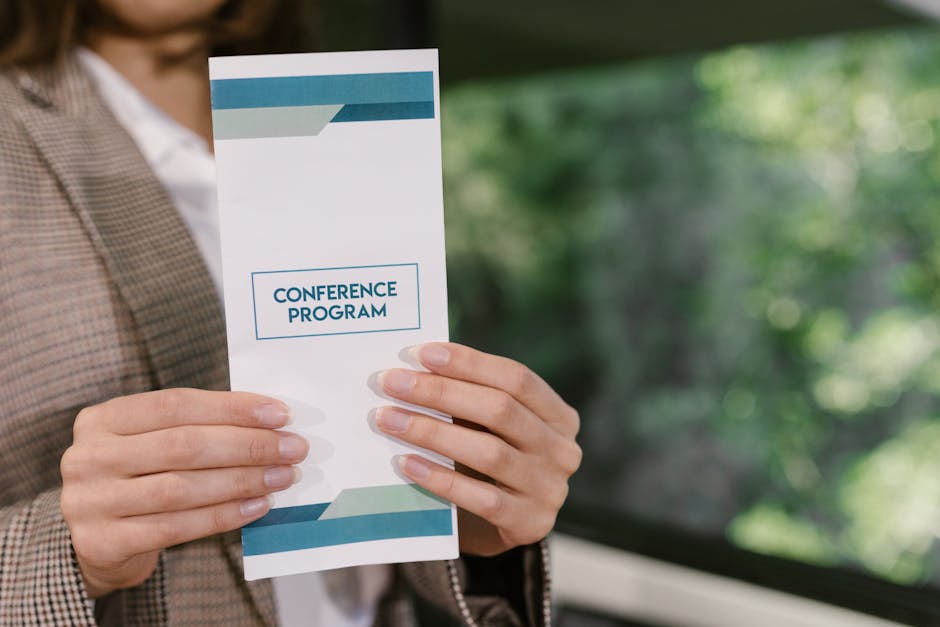The Ultimate Guide to Networking Etiquette
Have you ever walked into a room full of strangers and felt lost? you’re not alone! Networking can be daunting. But fear not! This guide will help you navigate the world of networking etiquette with ease and confidence.
Did you know that 85% of jobs are filled through networking? that’s a powerful reason to master networking skills. Lets dive into the essential dos and donts that will help you shine in any networking situation.
What is Networking Etiquette?

Networking etiquette refers to the set of rules that guide how we interact with others in professional settings. it’s all about respect, courtesy, and making meaningful connections.
Think of it as your social playbook. When you understand networking etiquette, you can build relationships that last. Lets break it down into key areas.
Why is Networking Etiquette Important?

Good networking etiquette can open doors to new opportunities. It builds your reputation and helps you stand out. Here are a few reasons why it’s crucial:
- First Impressions Matter: You often only get one chance to make a good impression.
- Respect and Courtesy: Showing respect helps foster a positive environment.
- Building Trust: Good etiquette builds trust and rapport with others.
In a world where connections are key, your etiquette can set you apart from the rest.
How to Start Networking Successfully?

Starting is often the hardest part. Here are some tips to ease your entry into the networking world:
- Prepare Your Introduction: Have a brief, engaging introduction ready. This should include your name, role, and what you do.
- Ask Questions: Show genuine interest in others. Ask open-ended questions about their work or interests.
- Be Mindful of Body Language: A smile and eye contact can go a long way. It shows you are approachable and engaged.
Remember, people love talking about themselves. Let them lead the conversation!
What Are the Dos of Networking Etiquette?

Now, lets explore the dos that can help you network like a pro.
Do Be Genuine
Authenticity is key. Be yourself and let your personality shine. People can tell when you are being sincere, and they will appreciate it.
Do Follow Up
After meeting someone, send a follow-up message. Thank them for their time and mention something specific you discussed. This small gesture can keep the conversation going.
Do Listen Actively
Listening is just as important as speaking. Pay attention to what others are saying and respond thoughtfully. This shows respect and builds a deeper connection.
What Are the Don’ts of Networking Etiquette?
Equally important are the donts. Avoid these common pitfalls.
don’t Interrupt
Let others finish their thoughts before jumping in. Interrupting can come off as rude and disrespectful.
don’t Be Overly Aggressive
While enthusiasm is great, being too pushy can turn people off. Approach networking with a friendly and relaxed attitude.
don’t Forget to Dress Appropriately
Your appearance matters. Always dress according to the events dress code. When in doubt, it’s better to be slightly overdressed than underdressed.
How Can You Make a Lasting Impression?
Making a lasting impression is crucial in networking. Here are some tips to help you stand out:
- Use Their Name: People love hearing their names. It helps personalize the conversation.
- Share a Personal Story: Relating a short, relevant story can make you memorable.
- Show Enthusiasm: A positive attitude can make others feel good around you.
Your goal is to be memorable for all the right reasons!
How to Handle Networking Events?
Networking events can be overwhelming. Here are some strategies to help you navigate them:
Arrive Early
Getting there early gives you a chance to settle in and meet a few people before the crowd arrives. it’s often less intimidating.
Bring Business Cards
Always have business cards on hand. They are an easy way to share your contact information. Make sure your cards are professional and up-to-date.
Set Goals
Before you attend, set a goal. Aim to meet a certain number of new people or have meaningful conversations. This gives you a clear focus.
What Should You Do After Networking?
Networking doesnt stop when the event ends. Follow these steps to nurture your new connections:
Follow Up Promptly
Send a message within 24-48 hours. Remind them how you met and express your appreciation for their time.
Connect on Social Media
LinkedIn is a great platform for professional connections. Send a personalized connection request mentioning something from your conversation.
Offer Value
Networking is a two-way street. Share articles, resources, or connections that could benefit your new contact. This shows you care about their success.
How to Avoid Common Networking Mistakes?
Even seasoned networkers can slip up. Here are a few common mistakes to avoid:
- Neglecting to Prepare: Going in unprepared can lead to awkward conversations.
- Only Talking About Yourself: Remember to balance the conversation. Ask questions!
- Not Following Up: Failing to follow up can waste the opportunities youve created.
Awareness is key! Keep these mistakes in mind to improve your networking skills.
When is Networking Most Effective?
Timing can make a big difference in networking success. Heres when to maximize your efforts:
- During Professional Events: Conferences, workshops, and seminars are great for meeting like-minded professionals.
- At Social Gatherings: Informal settings can lead to unexpected connections.
- Online: don’t overlook virtual networking through platforms like LinkedIn or webinars.
No matter the setting, keep your networking skills sharp!
Conclusion: What Are Your Next Steps?
Networking isn’t just about exchanging business cards; it’s about building relationships. Remember the dos and donts of networking etiquette. Approach each interaction with authenticity and respect.
As you step out into the networking world, keep these takeaways in mind:
- Be genuine and show interest in others.
- Follow up and maintain connections.
- Practice good listening skills.
Each networking opportunity is a chance to grow. So, get out there and start making connections!
For more tips on professional growth, check out our post on Developing Your Career Skills.



